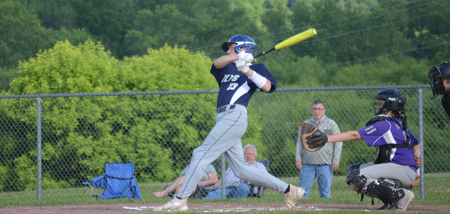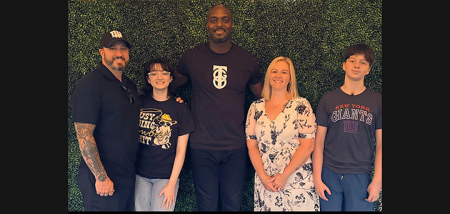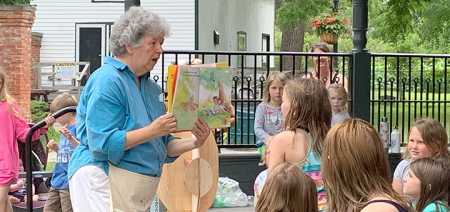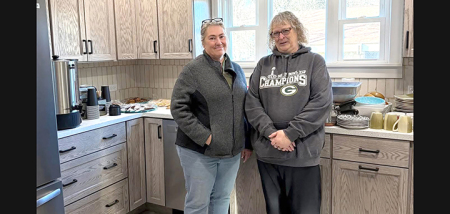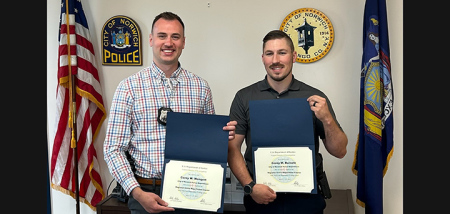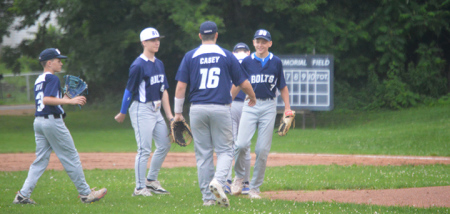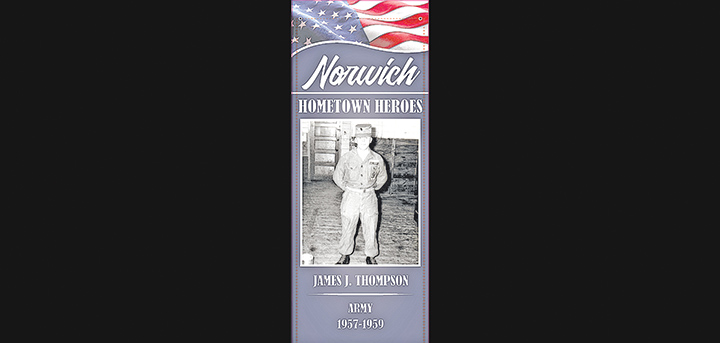Tilting At Windmills: Death Of A Violinist
Published:
June 9th, 2023
By:
Shelly Reuben

I would not describe myself as a tough man. Left to my own devices I would rather grow cucumbers than flowers, and watch the Super Bowl than go to a ballet, but I don’t kick puppies, and when my wife was alive, I would have knit booties out of barbed wire just to make her smile.
Our daughter Beth looks exactly like Caroline. Same laughing green eyes. Same crooked grin. That’s why, even though she sounds like a dying frog when she plays the violin, I paid for her lessons with Mr. Schoenbaum, an aristocratic individual with a hawk nose, preposterous eyebrows, and slate gray eyes, who was allegedly the best teacher in town.
Beth took dance lessons, too. Her ballet teacher was Miss de Lafontaine. As near as I can figure, music and dance teachers don’t have first names and are “Mr.” or “Miss” when they pop out of the womb. When Beth started her lessons with Mr. Schoenbaum, he lived in a cramped trio of rooms on East 21st Street in Manhattan. The first week in April, however, he informed the parents of his students that he would now be giving lessons out of a larger apartment in Brooklyn.
Why the move?
Because, he explained, he had adopted a child. One, incidentally, who was also a virtuoso violinist.
I met this aforementioned wunderkind – Dante. No-last-name-no-middle-initial – and became peripherally involved with his fate only because Beth had decided to study the violin.
I’m a cop, but it wasn’t my case. Nor did I make the arrest. I was there, though. Beth and I both were, and we both saw the boy die. Beth says she’s all right with it. She isn’t, but that’s okay, because I’m not all right with it either.
To get back to Mr. Schoenbaum, it turns out that other than teaching privately, he is also Dean of the School of Music at Lancaster College, located in an old red brick building in Park Slope, Brooklyn. The practice rooms are on the fifth floor, and you get to them by climbing a narrow staircase that looks like it was designed as a set for the movie Frankenstein starring Boris Karloff.
It was in this stairwell that Dante no-last-name-no-middle-initial was living in the shadows beneath the stairs. He had made himself a nest of sorts, consisting of a ratty army blanket, a plastic water bottle, a clean change of clothes, and a neat stack of sheet music labeled “Property of the Lancaster College School of Music.”
During the day, Dante roamed the neighborhood, stealing food and hanging out at libraries. But at 4:00 p.m. on Mondays, Wednesdays, and Fridays, he was back at his post, because in Rehearsal Room E, about 17 feet away from Dante’s lair, Mr. Schoenbaum taught the violin.
Dante was 14 years-old – a year older than Beth – and about six feet tall. He had light brown skin, long slim fingers, a handsome face, and an expressionless mouth. His eyes were big, black, and haunted.
It was right before Beth’s first lesson in Mr. Schoenbaum’s new apartment that we met this musical genius for the first time. Mr. Schoenbaum opened the door, and we followed him inside. He said, “This is Dante.” Then he turned and led us into his studio, sparsely furnished with four chairs, two music stands, and an upright piano.
After her lesson, Beth and I caught another glimpse of Dante walking away from us down the hall. I turned toward Mr. Schoenbaum and gave him an inquiring look. He responded that other than having observed six scars on the backs of his shins and ankles, which suggested a horrific childhood, he knew very little about Dante’s past. He did know, however, that Dante had a violin. He believes the boy had once taken music lessons in an elementary school, and that his acquisition of the instrument dated back to then.
As to Dante’s presence on the fifth floor of Lancaster College, Mr. Schoenbaum had an explanation for that, too.
At exactly 4:00 p.m. on the violin instructor’s teaching days, Dante would position himself across from Rehearsal Room E, so that he could observe the Great Man give lessons. Dante would tear a small piece of masking tape off a roll he kept in his knapsack and affix his sheet music to the riser at the back of one of the stairs. Then, in silent pantomime of what was occurring 17 feet away, he imitated the bow and finger work, but without his bow ever touching the strings.
Every Monday, Wednesday, and Friday, Dante followed the same routine, and every night after the custodian locked up, he stole out from under the stairs, entered Rehearsal Room E, and played, really played, the pieces that he had learned earlier in the day. He couldn’t risk turning on a light, so he played by heart.
For over thirteen months, Dante maintained this vigil, but one lonely night, his surreptitious lessons came to an abrupt halt. I have no idea which student Mr. Schoenbaum was teaching at that hour. I only know he was as bad a violinist as Beth. I also know that he was playing Jules Massenet’s “Meditation” from the opera “Thais,” because it is one of my daughter’s favorite pieces.
So those were the circumstances at the time: Mr. Schoenbaum, scowling while his pupil butchered “Massenet," and Dante, forgetting that the bow of his violin should be stroking nothing more substantial than air. But it was a balmy spring evening. The windows were wide open, a breeze was wafting in a scent of lilacs, and Dante became so lost in the romance of the melody emanating from Rehearsal Room E that his fingers not only danced up and down the fingerboard of the violin, his bow also touched the strings, too.
When Mr. Schoenbaum heard well-played music displacing the scratchy sounds coming from his student’s violin, he stalked angrily out the door in search of its source. But as he moved closer to the sounds, he realized that “Meditation” was being played in a style unlike any he had heard before. Within seconds, his anger faded, and he discovered Dante no-last-name no-middle-initial playing a violin with his eyes closed, completely unaware of his surroundings, under the shadow of the stairs.
The instant that the young teen finished the piece, he opened his eyes and saw Mr. Schoenbaum, his idol, staring at him. He gasped in horror, and attempted to bolt past the teacher and run down the stairs. But a fourteen-year-old street urchin is no match for a tall, fit, domineering Dean of Music. One who immediately realized that he had just stumbled upon the rarest of rare in the world of music: a genius. A prodigy. A boy whose soul not only understood music, but whose entire being was music.
I don’t know the details of about what came next, but the outcome, which I mentioned earlier, was no secret. Mr. Schoenbaum of no-known first name legally adopted Dante of no-known last name, who had become Dante Schoenbaum by the time that we met.
Now I must tell you about Lucas Pride.
This barnacle on the butt of humanity was short, stocky, and sneering, with a body like a fire hydrant and a face like a spitting camel. Before his 18th birthday, Lucas had been arrested for robbery, arson, illegal weapons possession, and assault. He lived with his mother, another bottom feeder, on Leroy Street in Manhattan. His last arrest was for the attempted rape of a 22 year-old tourist from Duluth, but he wasn’t prosecuted, because the complainant bought a bus ticket back to Minnesota and disappeared. So Lucas Pride was back out on the streets.
One day in early May, I arrived at Mr. Schoenbaum’s apartment at 4:30 p.m. for Beth’s five o’clock lesson. Beth’s subway was delayed at 36th Street, so I got there early, and she got there late.
I rang the bell and apologized to Mr. Schoenbaum for the intrusion. But he shook his head and said, “You aren’t intruding. Why don’t you join us in the studio?” So I followed him in, and when he pointed to a folding chair, I sat.
I saw Dante behind a music stand with his bow hand hanging loosely at his right side and his violin held aloft in his left hand. I nodded at him and smiled. His eyes, still black and still haunted, met mine. He nodded back, but did not return my smile. Come to think of it, I never saw Dante smile. Then Mr. Schoenbaum tapped the music stand with the side of his baton and demanded, “From the beginning.”
This is where, as a chronicler of event, I fall down on the job since I don’t know what piece Dante was playing. I didn’t recognize it then, and I never had the heart to ask about it later. I think Dante played for about fifteen minutes, but I lost track of time, because the strings of his violin became fluttering fingers, and the fingers were making rapturous love to my heart. I felt it all: the joy; the sorrow; the ecstasy; the thrill; the fear.
Life. Death. And the imperishable grief that loss can bring.
It wasn’t until the music stopped that I noticed Beth was sitting by my side and our hands were latched together in a death grip. And it wasn’t until I took a handkerchief out of my pocket and wiped away Beth’s tears that I realized how moved I had been, because she then took the handkerchief from me and wiped away my tears, too. I didn’t know music could do that ... make a grown man cry. A man who would rather grow rhubarbs than roses and likes the gridiron better than the ballet.
All of this probably sounds corny, but I don’t care. I’m a cop. I don’t tell stories for a living; I write police reports. I investigate crimes. But not that afternoon. That day, I was on the receiving end of a gift so big, I was literally struck dumb. I had witnessed a talent so overawing that I had expected Dante’s music teacher to slap his adopted son on the back or to burst into applause.
But Mr. Schoenbaum didn’t say a thing. Neither did I. I did not say, “Thank you, Dante,” and to this day, I regret that deeply. But Dante looked at me and at my daughter Beth, and he saw tears in both our eyes, and he made a motion that was halfway between a bow and a nod, so he must have known how much his playing touched us.
The next time I saw Dante was when Mr. Schoenbaum’s students got together with young people from of all over the city to create a five-borough orchestra for an annual recital at Carnegie Hall. For those who don’t know the city, Carnegie Hall is located on 57th Street and Seventh Avenue in Manhattan. The Russian Tea Room is right next-door. Tiffany’s is two blocks east.
Even though Beth’s contribution to the recital was minimal, her spirits soared. She was 13 years-old and playing at Carnegie Hall. She had a smile on her face as big as Wyoming, and my heart went on another roller coaster ride. But this time, without the tears.
Dante played that evening, too. A short, tricky solo to a standing ovation. It’s the kind of music that the cognoscenti get excited about, but to be honest, it didn’t make my socks roll up and down.
Then it was over. Families hugged, laughed, and took pictures. Joy was in the air. I gave Beth a small bouquet of violets and miniature roses. She hugged me, and we had started to walk, arm-in-arm away from the concert hall, when it happened. Then everything went down so fast; nobody had time to think. No one except Lucas Pride.
He had been standing on the southeast corner of 57th Street and Seventh Avenue, waiting for the concert to end and for the audience to spill into the street. Beth and I were just outside the lobby doors; Mr. Schoenbaum and Dante were about ten feet closer to the curb. Dante was holding his violin case in his left hand. Lucas Pride bounded toward him, nasty, nimble, brutish, and fast. His thick arm reached out, and his hand jerked at the handle of the case holding the violin.
Like I said, it went down fast. In a microsecond, Dante spun around. The elbow of his right arm crashed into Lucas Pride’s chest. Lucas made an “oof” sound, staggered back across the sidewalk, and died. Just like that. No overture. No prologue. Dead.
I don’t have to tell you what happened next, because you’ve seen it on hundreds of cop shows on TV. The sirens. The squad cars. The crime scene tape. The TV cameras. The chaos. The crowds. What was not expected, though, was that the Manhattan district attorney, Malcolm Kline, would swear out an arrest warrant against Dante, or that the following day, police detectives would ring the doorbell of Mr. Schoenbaum’s apartment, handcuff the young musician, and haul him away.
The way I saw it, Dante had only two things going for him. First ... me. I’m a NYC Police Officer, a trained observer, and a credible witness who had testified dozens of times in criminal court. The second was Midge Gillespie. Midge, the divorced mother of a girl who also took violin lessons from Mr. Schoenbaum, is an attorney. She handles adoptions (she did Dante’s), real estate closings, wills, pre-nups, property settlements, and so on. When Dante got arrested, Midge was finally able to do what she had always dreamed about doing: defend an innocent client.
District Attorney Malcolm Kline disagreed about Dante’s innocence, and decided to charge him as an adult with manslaughter. Personally, I never liked Kline. He’s a pompous, arrogant, ambitious bully who prosecutes only cases he thinks he can win. Justice never enters into the equation. As such, he did everything he could to portray Lucas Pride as a victim and Dante no-last-name-no-middle-initial as a trained killer with a short fuse.
As expected, in the first phase of the D.A.’s presentation, he solicited testimony from the arresting officer, the medical examiner, crime scene technicians, and so on. His final witness, however, was a surprise. Bill Okayama is a master jujitsu instructor and holds black belts in ten martial arts. In response to Kline’s questions, Okayama analyzed the prosecutorial version of the blows (plural) that were dealt to Lucas Pride, described their level of complexity, and characterized them as inherently lethal. And when asked to explain the legal ramifications of the use of deadly physical force, Okayama stated that it is the responsibility of the martial arts practitioner to restrict himself to its reasonable and necessary implementation.
“So,” the D.A. persisted smugly, “if someone had tried to steal your violin, would you consider it necessary to kill him?”
“No. I would not.”
When Midge Gillespie began her cross-examination of Bill Okayama, her intention was not to demonize the man; it was to chip away at the idea that Dante was a trained killer. In response to her questions, he admitted that he had seen no evidence to suggest the accused was proficient in or familiar with any of the martial arts; and when asked if the death described by prosecutors as “resulting from a complex series of lethal blows” might just as easily have resulted from “a reflexive elbow to the ribs,” without hesitation, Okayama answered, “Yes. It could.”
After Midge was finished with her cross examination, she presented the defense’s case, which consisted of one character witness: Mr. Schoenbaum; one eyewitness: me; and one human factors expert: Nelson Rodriguez, Ph.D.
Dr. Rodriguez studies how people react in conditions and/or circumstances that they perceive as threatening. His particular areas of expertise are perception and reaction times. The charts, diagrams, and graphs he displayed were impressive, but tedious, and almost put the jury to sleep. But they woke up when he said that human beings react faster and exhibit deadlier responses when they perceive a threat to their loved ones than they do when they feel threatened themselves.
After Dr. Rodriguez was dismissed, Midge called her last witness.
When D.A. Kline heard who, or rather what it was, he objected vehemently. “That’s an inanimate object!” He shouted. “It’s already been introduced into evidence, and there’s no way I can swear it in!”
Midge addressed the judge. “May I approach the bench?”
A whispered conversation resulted in him giving the defense attorney the go ahead. Then, referring to the testimony of the human factors expert, she explained to the jury that Dante’s reaction to Lucas Pride’s attack was not born of rage or premeditation. It was, instead, a manifestation of a natural impulse to protect the things in the world that we love the most.
Midge motioned Dante to the witness box and handed him his violin. The courtroom fell silent.
I don’t know if Dante and Midge collaborated beforehand on which piece he would be playing. In fact, I’m sure that they didn’t. Later, she told me that she’d just said to him, “Play like your life depends on it. Play to break the jury’s heart.”
He did. The same piece that he had played the day I arrived early and Beth arrived late for her lesson. I still don’t know what it’s called, but if I had to make up a title, it would be “The Song of a Thousand Tears,” because there wasn’t a dry eye in the courtroom by the time he finished playing.
Within seconds, and without a closing statement, Midge said, “Your honor, the defense rests.”
Nobody remembers the prosecutor’s summation, since nobody was listening, and it took less than fifteen minutes for the jury to be ushered out, vote, and then be ushered back in. The verdict was Not Guilty. No great surprise. Nor was the response from the spectators. Despite the judge’s half-hearted admonition that he would clear the courtroom if they didn’t shut up, they burst into wild hoots and applause.
Midge stared at Dante. Mr. Schoenbaum’s eyes darted back and forth between Midge and his adopted son. Dante remained motionless. I saw a sorrowful expression settle on his gaunt, handsome face, and as I observed the exaltation at the defense table, what flashed through my mind was not that we had great cause for happiness, but the last two lines of Ernest Thayer’s poem, “Casey at the Bat.”
“And somewhere men are laughing, and somewhere children shout,
But there is no joy in Mudville – Mighty Casey has struck out.”
Dante hadn’t struck out. If anything, he had hit the ball out of the park. But sometime between the hour when he had first fallen in love with music and those last few seconds when Midge told him to play to break the jury’s heart, his own heart had been broken. Instead, amidst the turmoil of celebration, I watched Mr. Schoenbaum’s protégé return his violin to the evidence table, looking neither at his lawyer nor at his adoptive father, and walk out of the room.
Lucas Pride had tried to steal a violin and failed. He had died for his effort. But he had managed to kill Dante’s joy. A life for a life. A death for a death.
When we got home that night, Beth told me that she didn’t think she wanted to take violin lessons anymore. At least, not for now. “For now” turned into forever, and she never went back.
This all happened eleven years ago. Since then, I’ve often wondered if Mr. Schoenbaum’s love for Dante was more than an ambitious teacher’s enthusiasm for a gifted protégé, and if their father / son relationship had survived the boy’s abandonment of his violin.
I wondered if time’s curative powers had healed the young genius. Time had worked its magic on me. I will always love Caroline, but I married Midge ten months after the trial. And I wondered … I still wonder … if Dante no-last-name no-middle-initial ever resumed what should have been a brilliant career. Sometimes, I go on my computer, search “Professional Male Violinists,” and browse through their web sites.
I read biographies, and I look at photographs. Other than details about performances, schedules, awards, and recordings, none of the violinists are forthcoming about their personal lives. Several seem to be about twenty-five years old. Some are tall and slim. A few appear to have aquiline noses and light brown skin. And when I look at their photos, I like to think that one of those handsome young men could be Dante, that he assumed a new identity, and that he is still playing the violin. But they all have last names, and none of them have haunted eyes.
Beth, however, has no doubts.
“Dante has become a cabaret violinist,” she says with imperturbable finality. “He has loyal fans who follow him from city to city. His manager is an emerald-eyed beauty with long black hair parted in the middle, and they are passionately in love.”
I prefer my daughter’s certainty to my skepticism. So for all practical purposes, Dante of no-last-name-and-no-middle-initial is still among us, playing his heart out, his agile fingers dancing up and down the fingerboard ... and moving insensitive old curmudgeons like me to tears.
Copyright © Shelly Reuben, 2023. Shelly Reuben’s books have been nominated for Edgar, Prometheus, and Falcon awards. For more about her writing, visit www.shellyreuben.com
Author: Shelly Reuben - More From This Author
Comments



